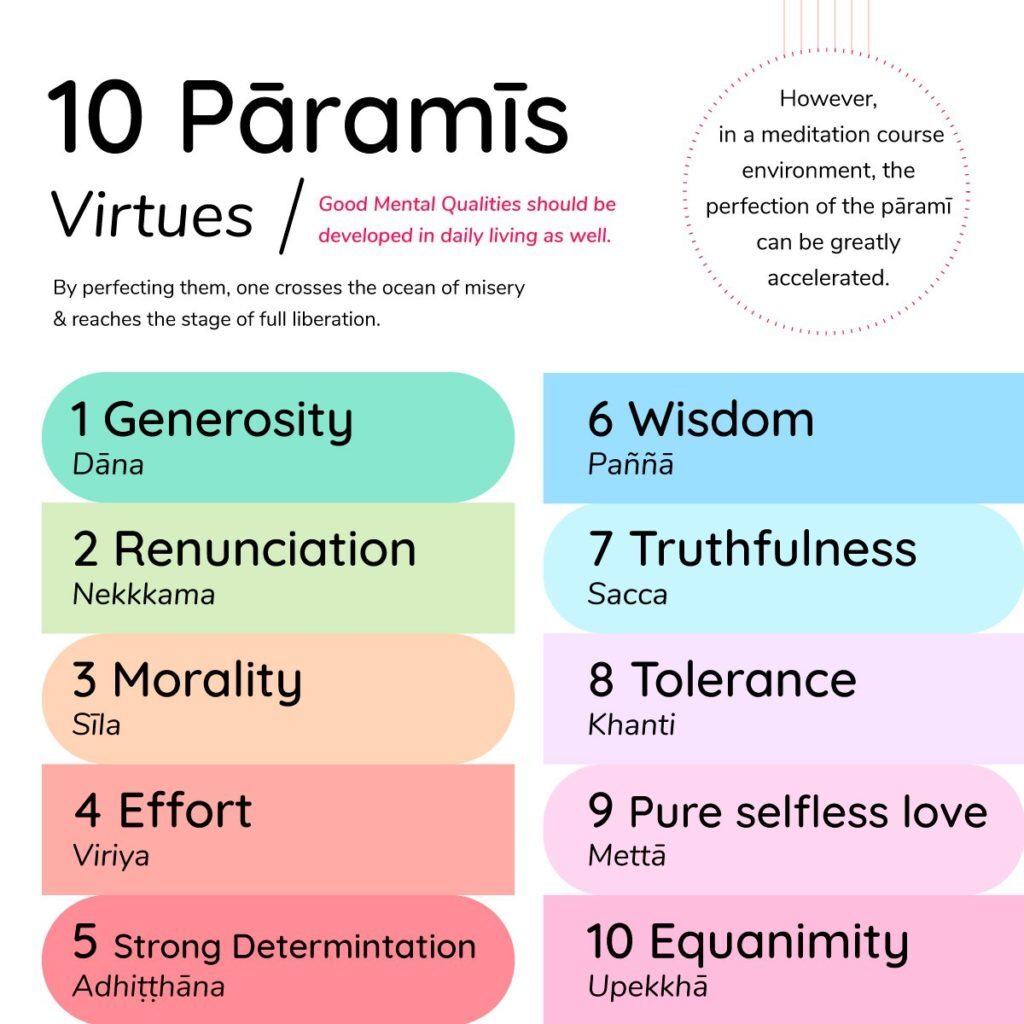Right effort is one of the fundamental principles for a human being. Man cannot live even for a single moment without doing karma(duties). The willful desire of life keeps him compelled to act or perform duties. The effort is the necessary foundation for any action.

The effort made is right or not right- it determines karma and its effects. If a concerted effort is right, that is, done properly, it will not only end the sorrows of life but will also pave the way for salvation. Right efforts, right concentration, and right mind-fullness are considered tri-jewels of samadhi.
10 paramis vipassana
The spiritual criterion of right effort is that the wholesome qualities within a human being should be protected and promoted, while the efforts should be to free from those qualities which are unwholesome. In the spiritual perspective, wholesome qualities and unwholesome qualities are the cause of human happiness and sorrow respectively. Greed, ego, or arrogance, ignorance is the basic unwholesome qualities.

On the contrary, in their place, generosity, love-compassion, and direct knowledge – great qualities are considered as wholesome in nature. The proper effort of a human being is to remove the unwholesome qualities and enrich great qualities. Four important rules are included in the right effort which compliance is considered as inevitable.
Emergence of unwholesome qualities

The origin and enrichment of wholesome or unwholesome qualities totally depend upon the human being. For this, the man himself is responsible whether he is trying for what kind of qualities. The creation of the world is in the form of duality where both virtue and demerit exist simultaneously. While the choice between them is up to the human being. If the human effort is right, then unwholesome qualities can be stopped before they arise.
Removing the unwholesome qualities arisen

If unwholesome quality is already present inside the human being, then due efforts should be made to remove these defects. Although it is not easy to remove the inherent demerits but it is neither an impossible one. With a little resolve power and a continuous effort, complete freedom can be attained from unwholesome qualities.
Emergence of wholesome qualities

Just as unwholesome qualities can be prevented before emergence, in the same way, it is mandatory to try for the emergence of proper or right qualities. The right attitude and thoughts of a human being not only attract the wholesome qualities but also form the basis for them. The direction of our karma should be such that the emergence of great right qualities can be ensured.
Enrichment of the wholesome qualities

Many great qualities may be present in a human being, but if they are not taken care of and cultivated, they can be degraded. Great quality is rare, but if it is present in you, then it is a great gift of destiny which is equally important to cherish. If you have nature-gifted qualities like compassion, love, generosity, knowledge, then you are a man with great attributes. Therefore, it is your moral duty to enrich and nourish these qualities.
Conclusion
Lord Buddha called the state of unwholesome qualities “akushal dhamma” under which impurities exist at the deepest level of thoughts, expressions, feelings inside the mind. On the contrary, the mental state under which the mind is completely free from impurities is called “Kushal Dhamma”. There are five such impurities that are considered to be the biggest obstacles in ” Kushal Dhamma”. Physical desires or craving, ill-will, laziness, restlessness or anxiety, and doubt – these five obstacles are known as ‘Pancanivarana’ which can be overcome with the right-effort.
courtesy : google images





